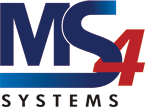
"We provide customers with working solutions to complex information engineering problems"
We are offering a Requirements' Engineering Course using our new MS4 Me Requirement's Modeling and Simulation Platform.
Translating stakeholder needs into requirements is difficult. It requires a clear understanding of the problem and clear communication of the time, material and multiple resource constraints to designers, developers and implementers. Good requirements'engineering is not an event, but a process that requires negotiation and revision until the stakeholders' vision is aligned with the reality of what actually can be done with the available resources.
MS4 Me is a requirements' engineering modeling and simulation platform that allows you to convert stakeholders' words, intent and meaning into a design that can be visualized in terms of material, resources and timing. The model can be built and simulated in real-time allowing you to negotiate requirements with your stakeholders in the most efficient manner yet possible.
MS4 Me is easy to use and only takes a few hours of training to get started, but is extremely powerful and scales to any size project. The same tool can be used by managers then architects/designers and ultimately engineers and technicians who can drill down to the finest and most sophisticated mathematical detail. The same platform that collects the requirements can execute the simulation on a laptop, and then be exteneded to a cluster, grid or a massively parallel super computer. Simple, Powerful ??Elegant.
We will be offering several courses per year. If this course does not fit your schedule, please let us know if you are interested and will let you know when the next course will be offered.
Requirements Engineering With MS4 Me Columbia, MD
Tuition for two and half-day course is $1490 per person. Tuition includes the MS4 Me Beta release for one year use.
Please send an email to support@ms4systems.com.
Summary
The course covers the basics of systems concepts and discrete event systems specification (DEVS), a computational basis for system theory. It demonstrates the application of DEVS to "virtual build and test" requirements engineering in complex information-intensive systems development. The DEVSME Requirements Engineering Environment leverages the power of the DEVS modeling and simulation methodology. A particular focus is the application of model-based data engineering in today's data rich ??and information challenged ??system environments.
Instructors:
Bernard P. Zeigler is chief scientist for RTSync, Zeigler has been chief architect for simulation-based automated testing of net-centric IT systems with DoD's Joint Interoperability Test Command as well as for automated model composition for the Department of Homeland Security. He is internationally known for his foundational text Theory of Modeling and Simulation, second edition (Academic Press, 2000), He was named Fellow of the IEEE in recognition of his contributions to the theory of discrete event simulation.
Contact: zeigler@ms4systems.com
Phillip Hammonds is a senior scientist for RTSync, He co-authored (with Professor Zeigler). the 2007 book, "Modeling & Simulation-Based Data Engineering: Introducing Pragmatics into Ontologies for Net-Centric Information Exchange". Elsevier Press. He has worked as a technical director and program manager for several large DoD contractors where skilled requirements and data engineering were critical to project success.
Contact: phil.hammonds@ms4systems.com
What You Will Learn
- Overview of IEEE and CMMI approaches to requirements' engineering
- Basic concepts of Discrete Event System Specification (DEVS) and how to apply them using DEVS Modeling Environment.
- How to understand and develop requirements and then simulate them with both Discrete and Continuous temporal behaviors.
- System of Systems Concepts, Interoperability, service orientation, and data-centricity within a modeling and simulation framework.
- Integrated System Development and virtual testing with applications to service oriented and data-distribution architectures.
- From this course you will obtain the understanding of how to leverage collaborative modeling and simulation to develop requirements and analyze complex information-intensive systems engineering problems within an integrated requirements' development and testing process.
Course Outline
- Introduction to the Requirements' Engineering Process.
- Introduction to Discrete Event System Specification. (DEVS)--System-Theory Basis and Concepts, Levels of System Specification, System Specifications: Continuous and Discrete. DEVS is the engine under the hood of the MS4 Me platform.
- Framework for Modeling and Simulation Based Requirements Engineering. DEVS Simulation Algorithms, DEVS Modeling and Simulation Environments.
- DEVS Model Development. Constrained natural language DEVS-based model construction, System Entity Structure - coupling and hierarchical construction, Verification and Visualization
- DEVS Hybrid Discrete and Continuous Modeling and Simulation. Introduction to simulation with DEVSJava/ADEVS Hybrid software, Capturing stakeholder requirements for space systems communication and service architectures.
- Interoperability and Reuse. System of Systems Concepts, Component-based systems, modularity, Levels of Interoperability (syntactic, semantic, and pragmatic). Service Oriented Architecture, Data Distribution Service standards.
- Integrated System Requirements Development and Visualization/Testing. Using DEVS Modeling Environment (MS4 Me) ??Requirements capture in an unambiguous, interoperable language, structured in terms of input, output, timing and coupling to other requirements, Automated DEVS-based Test Case Generation, Net-Enabled System Testing ??Measures of Performance/Effectiveness.
- Cutting Edge Concepts and Tools. Model and Simulation-based data engineering for interest-based collection and distribution of massive data. Capturing requirements for IT systems implementing such concepts. Software/Hardware implementations based on DEVS-Chip hardware.

